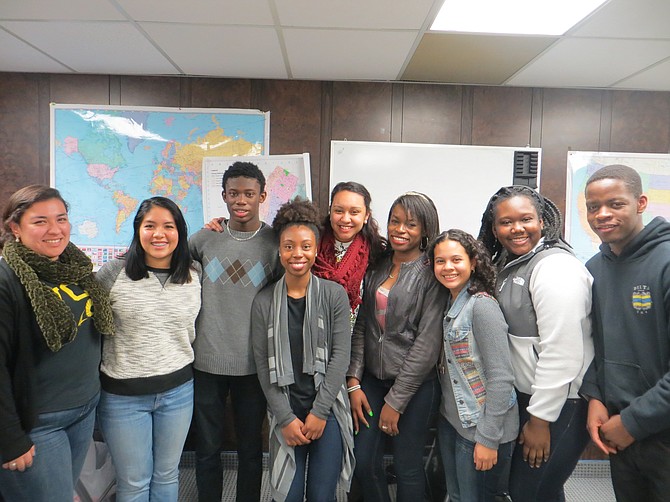Two women are making headlines in Europe and in France: Marine Le Pen and Christiane Taubira. Marine Le Pen leads the Nationalist party “Front National”(FN) that got 25% of the French votes, with a very low turnout, at the recent European Elections in France. Christiane Taubira, the Minister of Justice, will introduce her reform of the penal system for debate at the parliament in June.
These two women have a dramatically different vision of society. Le Pen developed her message using leftist critiques of neoliberal policies and then proposing xenophobic and populist solutions that actually end up benefitting those who thrive on the policies. Her communication technique is based on political spectacle to discourage any kind of debate. Given the opportunity, she would send any opposition to jail. Marine Le Pen participates in the creation of a nationalist right that openly accuses migrants; the poor and any and all marginalized populations of being responsible for any capitalist crisis. Similarly, the Republican Party in the United States has absorbed the extreme tea party branch and normalized the same type of approach of political spectacle in the political debate.
In this context, the coming debate over the penal reform bill will stage a political spectacle with no intention to actually address the question of incarceration and justice. The right and extreme right have shown no inhibition in attacking Christiane Taubira on racist and disrespectful terms.
Meanwhile, Christiane Taubira and her collaborators have undertaken the difficult task of reinserting human values into a penal system that had evolved to serve neoliberal policies. The previous Sarkozy administration responded to calls for prison as the only solution. These policies were fueled with a rhetoric of fear and security, which produced a fertile terrain for the development of political parties such as the FN. Under the aegis of security, the goal was to normalize the punitive control of populations increasingly marginalized by the reduction of social protection and public services, and increasingly precarious working conditions.
Taubira’s ministry has worked on this project since the beginning of her appointment. Consultations were broad and produced a great number of recommendations, especially from the Conference of the Consensus. This multi layer review system brought comprehensive recommendations largely directed at lowering the rate of repeat offenders with more productive solutions for offenders, moving away from mandatory sentencing.
According to Christiane Taubira, the central aspect of the bill is to establish restorative justice. The bill would abolish minimum sentencing, deemed one of the worst legacies of the previous president. It promotes case-by-case individual sentencing. Victims would benefit from a more distributive and generous support system. The bill would reduce “dry release” from prison, which means release without supportive measures for reentry.
The key is the criminal coercion measure, which supplies the judge with an array of sentencing possibilities, including injunction to care. Prison would no longer be the only resource available. This measure was to be applied to all offences. Many voices opposed this measure including within the government, from Prime Minister Manuel Vals to Minister of Interior Bernard Cazeneuve and finally to President Hollande. The men of State united to demand that the criminal coercion measure be limited to offences shorter than five years. The problem is that the criminalization of drug use has lengthened sentences beyond five years. A parliamentary technicality allowed representatives to amend the text so that Taubira’s initial bill could be restored. After the council of ministers on Friday, the President made clear that he would not tolerate this part of the bill without a five-year ceiling.
For these three leading men from a Left government, what is the basis of their vision of criminal law? Is it that incarcerating bodies is the best means to render justice, or is it that the climate of intolerance and suspicion, brilliantly exploited by right and extreme right nationalist elites, has forced them to compromise?
Marine Le Pen and the right in general, have accused Christiane Taubira of defending migrants and delinquents. They made this myth the main argument of their campaign. There is nothing new here. Ronald Reagan used mythologies of the welfare queen to win election. This simplification of social debate to mythical images erases the complexities of the current political economy.
This is the climate that awaits Chritiane Taubira as she engages parliament in a debate about the role of incarceration in connection with the protections of civil society, which implies a reduction of inequalities. As labor and social laws are being compromised to serve a financial market that has no desire to protect society but rather seeks to fragment it in order to utilize it, Taubira begins a national debate on mass incarceration as a function of a political economy of growing inequality.
Hopefully, the President, who claimed to be a progressive change agent, will support his Minister of Justice Christiane Taubira in her attempt to transform the criminal justice system and abandon repressive justice in favor of restorative justice and a restoration of civil society protections. We’ll see.
(Photo Credit: Libération / Joël Saget /AFP)
